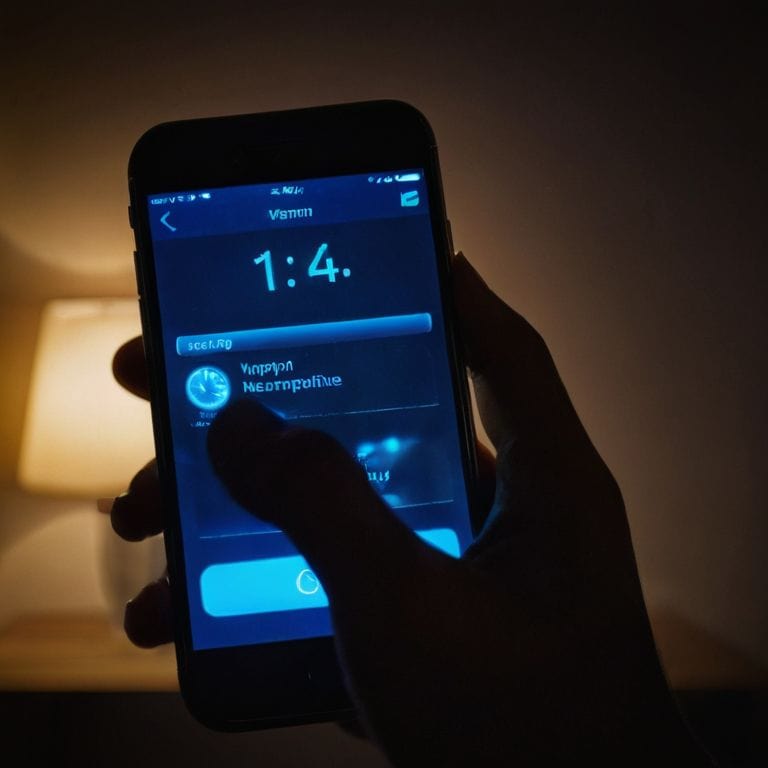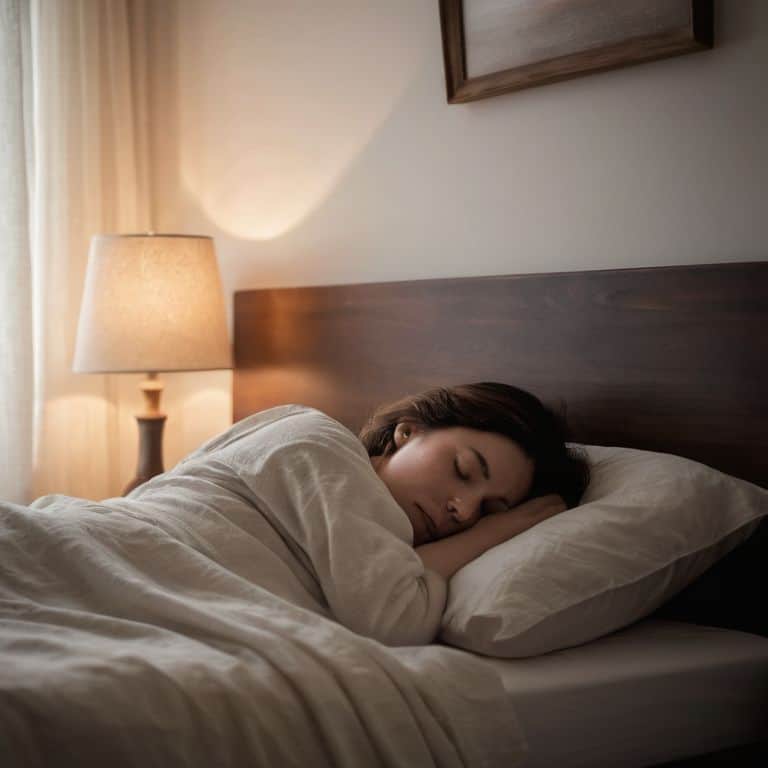I still remember the days when I’d trudge into the lab, feeling like a zombie, only to be greeted by a colleague who’d swear by the latest _circadian rhythm hack_. They’d claim that by simply drinking a certain tea or doing a specific stretch at dawn, they could reset their internal clock and become a morning person. As someone who’s spent years studying the effects of chronic stress on the brain, I knew that understanding circadian rhythms wasn’t quite that simple. In fact, most of these fads were nothing more than a waste of time and money, preying on people’s desperation for a quick fix.
As I delved deeper into the world of understanding circadian rhythms, I realized that the key to making sense of it all lay in separating fact from fiction. In this article, I promise to cut through the noise and provide you with evidence-based advice on how to work with your body’s internal clock, rather than against it. I’ll share my personal story of burnout and how I used my knowledge of neuroscience to develop a healthier relationship with my own circadian rhythms. My goal is to empower you with the same knowledge, so you can make informed decisions about your health and wellbeing, without falling prey to the latest wellness fads.
Table of Contents
Cracking Circadian Codes

As we delve into the world of circadian rhythms, it’s essential to crack the code of how our internal clocks respond to various external factors. One crucial aspect is the impact of technology on sleep, where the blue light emitted from smartphones and computers can suppress melatonin production, making it harder to fall asleep. This can lead to circadian rhythm disorders, which can have severe consequences on our overall health and wellbeing.
Regular exercise and sleep patterns are also vital in maintaining a healthy circadian rhythm. Engaging in physical activity during the day can help regulate our sleep-wake cycle, while avoiding vigorous exercise before bedtime is crucial to ensure a good night’s sleep. Additionally, diet and circadian rhythm are closely linked, with research suggesting that eating a balanced diet in sync with our natural circadian rhythm can improve our overall health.
By understanding how these factors interact with our internal clock, we can take steps to mitigate the stress effects on circadian clock, which can be particularly challenging during periods of high pressure or anxiety. For instance, practicing relaxation techniques, such as meditation or deep breathing, can help reduce stress and promote a healthy circadian rhythm, reducing the risk of conditions like seasonal affective disorder.
Diets Hidden Role in Circadian Rhythm
As we delve into the intricacies of circadian rhythms, it’s essential to consider the often-overlooked impact of diet. Nutrient timing plays a significant role in regulating our internal clock, with certain foods triggering responses that can either support or disrupt our natural rhythms.
A balanced meal schedule is crucial in maintaining harmony with our circadian rhythms, as irregular eating patterns can confuse our body’s internal clock, leading to issues like insomnia and digestive problems.
Technologys Dark Side Disrupting Sleep
As I hit the trails for my morning run, I often ponder the impact of technology on our sleep patterns. It’s no secret that screens and devices can interfere with our internal clocks, making it harder to wind down at night. The blue light emitted from these devices can suppress melatonin production, making it a challenge to fall asleep.
I’ve seen many clients struggle with sleep due to their late-night scrolling habits, and it’s essential to recognize the disruptive effects of technology on our sleep. By setting boundaries around screen time and creating a bedtime routine that promotes relaxation, we can take back control of our sleep and start feeling more rested and refreshed.
Understanding Circadian Rhythms

As we delve into the world of internal clocks, it’s essential to recognize the delicate balance between our lifestyle choices and circadian rhythm. The impact of technology on sleep, for instance, is a significant concern, as the blue light emitted from screens can suppress melatonin production, leading to disrupted sleep patterns. Furthermore, our diet plays a crucial role in maintaining a healthy circadian rhythm, with certain foods and eating schedules influencing the body’s natural cycles.
Regular exercise is also vital for regulating sleep patterns, as it helps synchronize the body’s internal clock with the external environment. However, excessive stress can have a detrimental effect on the circadian clock, leading to circadian rhythm disorders. It’s essential to manage stress levels through techniques like meditation or yoga to mitigate its impact on our internal clock.
By acknowledging the interconnectedness of these factors, we can take proactive steps to maintain a healthy circadian rhythm. This includes being mindful of our diet and exercise habits, as well as limiting our exposure to technology before bedtime. By making these adjustments, we can reduce the risk of developing circadian rhythm disorders and improve our overall wellbeing.
Exercise and Seasonal Affective Disorder
As we explore the intricate dance between our bodies and the environment, it’s essential to consider how regular physical activity can help mitigate the effects of seasonal affective disorder. Exercise has been shown to boost mood and energy levels, even on the gloomiest of days. By incorporating trail running into my own routine, I’ve experienced firsthand the benefits of being outdoors and moving my body, even when the weather is less than ideal.
Exercise can also help regulate our internal clocks, which can get disrupted during the winter months when daylight hours are shorter. By establishing a consistent exercise routine, we can signal to our bodies that it’s time to be awake and alert, even when the sun isn’t shining brightly. This can be especially helpful for those who struggle with seasonal affective disorder, as it provides a sense of structure and normalcy during a time when the days can feel dark and endless.
Stress and the Broken Clock
As we delve into the intricacies of our internal clocks, it’s essential to acknowledge the profound impact of stress on our circadian rhythms. Chronic stress can send our bodily functions into a tailspin, disrupting the delicate balance that governs our sleep-wake cycles, hormone secretion, and metabolism. When we’re under stress, our bodies produce cortisol, a hormone that can suppress the production of melatonin, making it harder to fall asleep and stay asleep.
The consequences of this broken clock can be far-reaching, affecting not only our sleep patterns but also our overall well-being. By understanding how stress affects our internal clocks, we can begin to develop strategies to mitigate its impact and restore balance to our bodily functions.
Synchronizing Your Life: 5 Essential Tips for Understanding Circadian Rhythms
- Establish a Consistent Sleep Schedule: Go to bed and wake up at the same time every day, including weekends, to help regulate your body’s internal clock
- Get Morning Sunlight Exposure: Natural light in the morning helps signal to your brain that it’s time to be awake, so try to spend some time outside in the morning to boost your circadian rhythm
- Watch What You Eat: Avoid heavy meals close to bedtime and opt for a balanced diet that includes foods rich in tryptophan, vitamin B12, and magnesium to support your body’s natural sleep-wake cycle
- Limit Screen Time Before Bed: The blue light emitted from smartphones, tablets, and computers can suppress melatonin production, making it harder to fall asleep, so try to avoid screens for at least an hour before bedtime
- Stay Active, But Not Before Bed: Regular exercise can help regulate your circadian rhythms, but avoid vigorous exercise within a few hours of bedtime as it can actually interfere with your ability to fall asleep
Key Takeaways to Synchronize Your Health
Recognize that your body’s internal clock is not just a metaphor, but a powerful physiological reality that dictates your energy, mood, and overall wellbeing, and that respecting its rhythms is crucial for health
Understand that modern lifestyle factors such as excessive screen time, irregular diets, and lack of physical activity can significantly disrupt your circadian rhythms, leading to a range of health issues from sleep disorders to increased risk of chronic diseases
Empower yourself with evidence-based strategies to align your daily habits with your natural circadian cycles, including tailored exercise routines, stress management techniques, and nutrition plans that support, rather than undermine, your body’s intrinsic clocks
Embracing Our Internal Rhythm
Understanding circadian rhythms isn’t about hacking your body into some sort of superhuman schedule; it’s about tuning into the ancient, innate wisdom that already resides within you, and letting that guide your path to genuine wellness.
Dr. Alistair Finch
Embracing the Rhythm of Life

As we’ve explored the intricate world of circadian rhythms, it’s become clear that understanding and working with our internal clock is crucial for overall well-being. We’ve discussed how technology’s dark side can disrupt our sleep patterns, the often-overlooked role of diet in maintaining a healthy circadian rhythm, and the impact of stress and exercise on our internal clocks. By acknowledging the interconnectedness of these factors, we can begin to make informed choices that support our natural rhythms, rather than fighting against them.
So, as you move forward, remember that embracing your natural rhythm is a journey, not a destination. It’s about listening to your body and honoring its needs, rather than trying to force it into an unnatural pace. By doing so, you’ll not only improve your physical and mental health but also cultivate a deeper sense of harmony and balance in your life. And that, my friends, is the greatest reward of all.
Frequently Asked Questions
How can I synchronize my daily routine with my body's natural circadian rhythm to improve my overall well-being?
To sync with your body’s natural clock, start by establishing a consistent wake-up time and bedtime, then gradually adjust your daily activities to align with your natural energy peaks and dips. For me, a morning trail run helps regulate my circadian rhythm, setting me up for a day of clarity and focus.
What are some practical ways to minimize the disruption of screen time and technology on my sleep patterns and circadian cycles?
To minimize screen time’s disruption on your sleep, try implementing a “digital sunset” – no screens for at least an hour before bed. Instead, opt for a relaxing activity like reading or a warm bath. You can also use blue light filtering glasses or apps that filter out sleep-disrupting wavelengths.
Can adjusting my diet and meal times really impact my circadian rhythm, and if so, what specific foods or eating schedules should I follow?
Let’s get specific – yes, diet and meal times can significantly impact your circadian rhythm. Research suggests that eating in sync with your natural light-dark cycle can help regulate your internal clock. Focus on whole, nutrient-dense foods and consider time-restricted eating to support your body’s natural rhythms.
